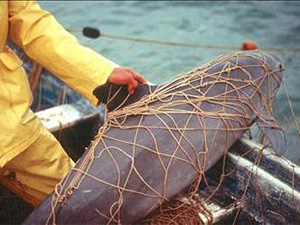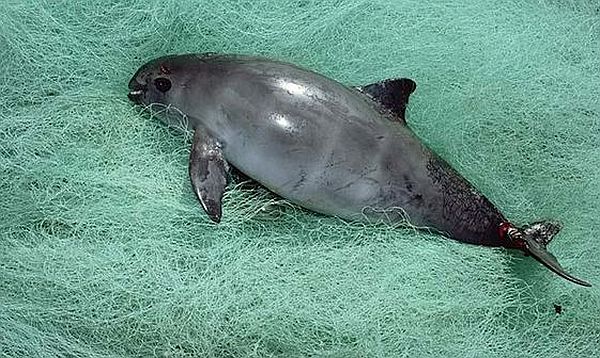At its 40th session last week, the United Nation's World Heritage Committee directed Mexico to take immediate action to save the imperiled vaquita porpoise, or risk "in danger" status for its "Islands and Protected Areas of the Gulf of California" World Heritage site.
The site was given World Heritage status in 2005, in part because it is home to the planet's last remaining vaquita porpoises, as well as the totoaba, a large, endangered marine fish. Just weeks ago scientists estimated that fewer than 60 vaquita survive and the species is on the precipice of extinction.
"As the international body responsible for World Heritage sites, the Committee has a duty to ensure that these ecologically and culturally important sites remain protected for future generations," said D.J. Schubert, a wildlife biologist with the Animal Welfare Institute. "For the vaquita, the decision of the Committee this week could determine whether the species survives or is permanently lost."
 |
When the Islands and Protected Areas of the Gulf of California site was inscribed on the World Heritage list, the critically endangered vaquita and totoaba were identified as part of the property's "outstanding universal value."
However, after decades of ineffective conservation efforts by Mexico, the vaquita now risks extinction by 2022 if its decline continues. The species is threatened by entanglement in fishing gear, including illegal gillnets set to catch the totoaba. The totoaba swim bladder is in high demand in Asia, where it is believed to have medicinal properties and can reportedly sell for U.S. $5,000 to $14,000 per kilo.
"If we lose the vaquita, the Gulf of California World Heritage site loses one of its critical features," said Sarah Uhlemann, international program director at the Center for Biological Diversity. "Mexico must permanently ban gillnets in the vaquita's habitat, step up enforcement, and stop endangering this incredible piece of the world's heritage."
In 2015 the Center and the Animal Welfare Institute petitioned the World Heritage Committee to list the Gulf of California site as "in danger." If the site is listed, U.N. funding could become available to assist Mexico in taking corrective actions to address threats.
The Center for Biological Diversity is a national, nonprofit conservation organization with more than 1 million members and online activists dedicated to the protection of endangered species and wild places.
The Animal Welfare Institute is a nonprofit charitable organization founded in 1951 and dedicated to reducing animal suffering caused by people. AWI engages policymakers, scientists, industry, and the public to achieve better treatment of animals everywhere - in the laboratory, on the farm, in commerce, at home, and in the wild. For more information, visit awionline.org.


